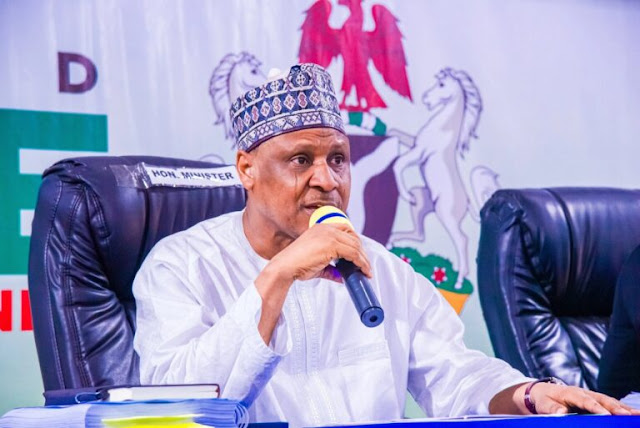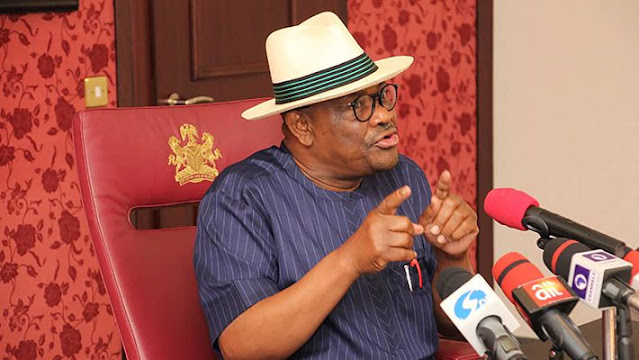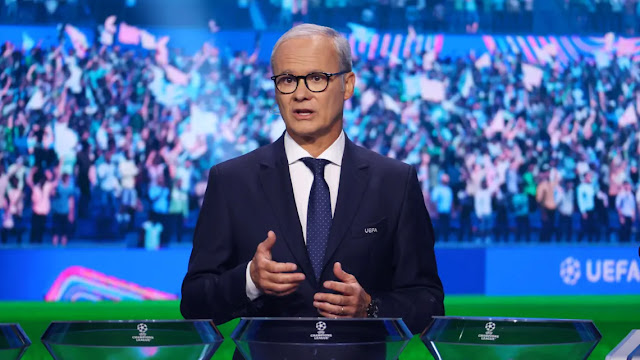On Wednesday, August 27, 2025, Nigeria’s Minister of Information and National Orientation, Mohammed Idris, addressed a gathering in Minna, Niger State, as part of a nationwide sensitisation campaign titled “Tinubu Administration’s Reports.” The campaign aimed to communicate the Federal Government’s ongoing reforms under President Bola Ahmed Tinubu’s Renewed Hope Agenda, emphasizing their role in fostering a stable, fair, and prosperous Nigeria. Speaking to a diverse audience of citizens, stakeholders, and government representatives, Idris outlined the rationale behind tough policy decisions, such as the removal of fuel subsidies and the unification of foreign exchange rates, while highlighting initiatives designed to cushion their impact on vulnerable populations. Accompanied by representatives of other key ministries, Idris stressed the importance of dialogue, patience, and collective responsibility in achieving long-term economic and social progress. This article provides an in-depth exploration of the campaign, the reforms, their implications, and the broader context of Nigeria’s socio-economic challenges as the nation navigates a transformative period.
The Sensitisation Campaign: A Platform for Dialogue
The “Tinubu Administration’s Reports” campaign is a strategic effort by the Federal Government to bridge the information gap between policymakers and citizens. Held in Minna, the capital of Niger State, the event was part of a series of outreach programs designed to explain the government’s policies, address public concerns, and foster a sense of shared responsibility. Mohammed Idris, a seasoned communicator and key figure in Tinubu’s administration, led the campaign, emphasizing that it was not merely about disseminating information but also about engaging Nigerians in a two-way dialogue.
“This is about giving citizens access to facts, fostering dialogue, and ensuring truth is not lost in the noise,” Idris stated, underscoring the campaign’s dual purpose of informing and listening. In an era where misinformation and skepticism about government intentions are rife, the campaign seeks to provide clarity on complex reforms while addressing public grievances. By choosing Minna, a key northern city, the government signaled its commitment to reaching diverse regions and demographics, particularly in areas where economic hardships have fueled discontent.
Idris’s message was clear: the reforms, though challenging, are deliberate steps toward reshaping Nigeria’s economy and improving citizens’ welfare. Anchored on the Renewed Hope Agenda, these policies aim to address longstanding structural issues, such as over-reliance on oil, fiscal inefficiencies, and social inequities. The campaign’s emphasis on transparency and engagement reflects the administration’s recognition that public buy-in is essential for the success of these reforms.
The Renewed Hope Agenda: A Blueprint for Transformation
At the heart of Idris’s address was President Tinubu’s Renewed Hope Agenda, a comprehensive policy framework introduced upon his inauguration in May 2023. The agenda outlines eight priority areas, including economic reform, poverty reduction, infrastructure development, and social welfare, with the overarching goal of creating a more inclusive and prosperous Nigeria. Idris highlighted that the reforms are not short-term fixes but long-term investments designed to address systemic challenges and position Nigeria as a competitive player in the global economy.
The minister outlined two of the administration’s most controversial yet pivotal reforms: the removal of fuel subsidies and the unification of foreign exchange rates. These policies, implemented in 2023, have sparked significant debate due to their immediate impact on living costs and economic stability. Idris defended these decisions as necessary to free up resources, stabilize the naira, and attract sustainable investment.
Fuel Subsidy Removal:
Idris described the removal of fuel subsidies as a “tough but necessary decision” to redirect funds from fuel consumption benefits, which primarily enriched a small elite, to critical sectors like infrastructure, education, healthcare, and job creation. For decades, Nigeria’s fuel subsidy regime consumed a significant portion of the national budget, with estimates suggesting it cost the government over $10 billion annually by 2022. The subsidies, while intended to keep fuel affordable, were riddled with inefficiencies, fraud, and smuggling, benefiting neighboring countries more than Nigerian citizens.
The decision to end subsidies in June 2023 led to a sharp increase in fuel prices, triggering inflation and public protests. Idris acknowledged the discomfort caused by this policy but argued that it was essential to break the cycle of fiscal waste. “Rather than fuel consumption benefits enjoyed by only a few, we are releasing funds for projects that benefit all Nigerians,” he said, pointing to investments in roads, schools, and hospitals as evidence of the policy’s long-term value.
Foreign Exchange Unification:
The unification of Nigeria’s multiple exchange rates, another cornerstone of Tinubu’s reforms, aimed to create a transparent and market-driven foreign exchange system. Prior to 2023, Nigeria operated a complex system of official and parallel exchange rates, which distorted the economy, discouraged foreign investment, and fueled corruption. By allowing the naira to float, the government sought to stabilize the currency and make Nigeria more attractive to investors.
Idris explained that this policy was intended to foster transparency and predictability in the forex market, encouraging long-term investment in sectors like manufacturing, agriculture, and technology. However, the naira’s initial devaluation led to higher import costs, exacerbating inflation and affecting the prices of goods and services. Despite these challenges, Idris emphasized that the policy is yielding results, with increased foreign direct investment and a more stable exchange rate environment.
Mitigating the Impact: Social Intervention Programs
Recognizing the immediate hardships caused by these reforms, Idris highlighted several social intervention programs designed to shield vulnerable Nigerians. These initiatives reflect the government’s commitment to balancing economic restructuring with social welfare, ensuring that the most disadvantaged are not left behind.
Student Loan Scheme:
The Nigerian Education Loan Fund (NELFUND), launched in 2024, provides interest-free loans to students pursuing tertiary education. Idris noted that this scheme aims to remove financial barriers to education, enabling young Nigerians to acquire skills and contribute to the economy. By August 2025, thousands of students have benefited, with plans to expand the program’s reach.
Small Business Support:
The government has introduced grants, low-interest loans, and training programs to support small and medium enterprises (SMEs), which employ over 80% of Nigeria’s workforce. These initiatives aim to stimulate job creation and economic resilience, particularly in the face of rising costs. Idris cited the success of programs like the Bank of Industry’s SME funding schemes as evidence of progress.
Conditional Cash Transfers:
To alleviate poverty, the government has expanded conditional cash transfer programs, providing direct financial assistance to millions of low-income households. These transfers, often tied to conditions like school attendance or health checkups, aim to improve human development indices while addressing immediate needs.
Idris emphasized that these interventions are deliberate and targeted, designed to cushion the short-term impact of reforms while laying the foundation for long-term prosperity. “We understand reforms are not always comfortable. Change can be hard, but these are long-term investments to create jobs, reduce poverty, and ensure Nigeria works for all, not just a few,” he said.
Sector-Specific Interventions: Infrastructure and Agriculture
The Minna event also featured contributions from other ministers, who outlined sector-specific achievements under the Renewed Hope Agenda. Their presence underscored the administration’s holistic approach to development, with a focus on infrastructure and food security as critical pillars.
Infrastructure Development:
Representing the Minister of Works, David Umahi, Niger State’s Controller of Works, Eyitayo Aluko, detailed ongoing federal road projects in the state. Key initiatives include the dualisation of the Ilorin–Jebba–Mokwa and Lambata–Lapai highways, which aim to improve connectivity, facilitate trade, and reduce travel times. These projects are part of a broader effort to rehabilitate Nigeria’s dilapidated road network, which has long hindered economic growth. Aluko emphasized that these investments are funded partly by savings from the fuel subsidy removal, demonstrating the tangible benefits of the reforms.
Agricultural Transformation:
The Minister of Agriculture and Food Security, Abubakar Kyari, represented by state coordinator Dr. Suleiman Ladan, highlighted efforts to boost food security through targeted programs. These include the distribution of improved seeds, fertilizers, and farming equipment to smallholder farmers, as well as investments in irrigation and mechanization. The administration’s focus on agriculture aims to reduce Nigeria’s reliance on food imports, enhance rural livelihoods, and stabilize food prices amid inflationary pressures.
These sector-specific updates reinforced Idris’s message that the reforms are multifaceted, addressing both immediate needs and long-term goals. By showcasing progress in infrastructure and agriculture, the government seeks to demonstrate that the sacrifices demanded by its policies are yielding results.
The Broader Context: Nigeria’s Socio-Economic Challenges
The sensitisation campaign comes at a time when Nigeria faces significant socio-economic challenges, which have shaped public perceptions of the Tinubu administration. The removal of fuel subsidies and exchange rate unification, while economically rational, have exacerbated inflation, with rates reaching over 30% in 2024. The rising cost of living has strained households, particularly in urban areas, where fuel and food prices have soared. Additionally, insecurity, including banditry and insurgency in the North, continues to disrupt economic activity and displace communities.
Public discontent, amplified on platforms like X, has fueled protests and criticism of the government’s policies. Many Nigerians feel that the benefits of the reforms are yet to materialize, while the immediate hardships are palpable. Idris’s call for patience and unity acknowledges these frustrations but also reflects the government’s belief that short-term pain is necessary for long-term gain. “Meaningful change requires sacrifice and collective responsibility,” he said, urging Nigerians to remain informed and engaged.
The campaign’s emphasis on dialogue is particularly significant in this context. By engaging directly with citizens, the government aims to counter misinformation and build trust. However, the success of this approach will depend on its ability to deliver tangible results and address public concerns effectively.
Implications for Nigeria’s Political Landscape
The sensitisation campaign and Idris’s remarks have several implications for Nigeria’s political and economic future:
Public Trust and Engagement:
The campaign’s focus on dialogue and transparency is a step toward rebuilding trust in government institutions. However, the government must follow through with visible progress to maintain credibility. Failure to deliver on promised infrastructure, jobs, and social programs could deepen public skepticism.
Political Stability:
As the 2027 elections approach, the Tinubu administration faces pressure to demonstrate the success of its reforms. The sensitisation campaign is a preemptive effort to shape public opinion and counter opposition narratives. However, opposition parties, such as the Peoples Democratic Party (PDP) and emerging players like the African Democratic Congress (ADC), are likely to capitalize on public discontent to challenge the ruling All Progressives Congress (APC).
Economic Transformation:
The reforms, if successful, could position Nigeria as a more competitive economy, attracting investment and reducing reliance on oil. However, the government must address short-term challenges, such as inflation and unemployment, to maintain public support.
Regional Dynamics:
The choice of Minna as a campaign venue reflects the government’s recognition of the North’s political and economic significance. Engaging northern states, where poverty and insecurity are acute, is critical to building a broad-based coalition for the reforms.
Challenges and Opportunities
The Tinubu administration faces significant challenges in implementing its reforms:
Economic Hardships:
The immediate impact of subsidy removal and exchange rate unification has strained households, making it difficult to sell the long-term benefits of these policies. The government must accelerate social interventions to mitigate these effects.
Communication Gaps:
Misinformation and public skepticism pose challenges to the campaign’s success. The government must invest in consistent, accessible, and multilingual communication to reach diverse audiences.
Security Concerns:
Ongoing insecurity undermines the government’s narrative of progress. Addressing banditry, insurgency, and communal violence is critical to creating an environment where economic reforms can thrive.
Despite these challenges, the reforms present opportunities:
Economic Diversification:
By redirecting resources to infrastructure, agriculture, and education, the government can reduce Nigeria’s dependence on oil and build a more resilient economy.
Youth Empowerment:
Programs like the student loan scheme and SME support can harness Nigeria’s youthful population, fostering innovation and job creation.
Public Engagement:
The sensitisation campaign provides a platform for building trust and fostering a sense of shared purpose. By listening to citizens’ concerns, the government can tailor its policies to address real needs.
Conclusion
The sensitisation campaign in Minna, led by Minister Mohammed Idris, is a pivotal effort by the Tinubu administration to communicate its vision for a stable, fair, and prosperous Nigeria. By outlining the rationale behind tough reforms like fuel subsidy removal and exchange rate unification, Idris sought to bridge the gap between policy and public understanding. The emphasis on social interventions, infrastructure, and agriculture underscores the government’s commitment to balancing short-term sacrifices with long-term gains.
As Nigeria navigates economic hardship, insecurity, and political polarization, the success of the Renewed Hope Agenda will depend on the government’s ability to deliver tangible results and maintain open dialogue with citizens. Idris’s call for patience, unity, and collective responsibility resonates with the need for a shared commitment to change, but it also places a burden on the administration to prove its policies’ worth. With the 2027 elections on the horizon, the campaign is a critical step toward shaping public perception and securing Nigeria’s path to sustainable growth. By engaging citizens, addressing their concerns, and delivering on its promises, the Tinubu administration can turn the challenges of reform into opportunities for a brighter future.






